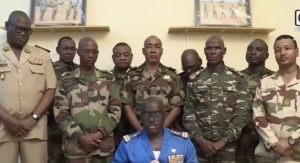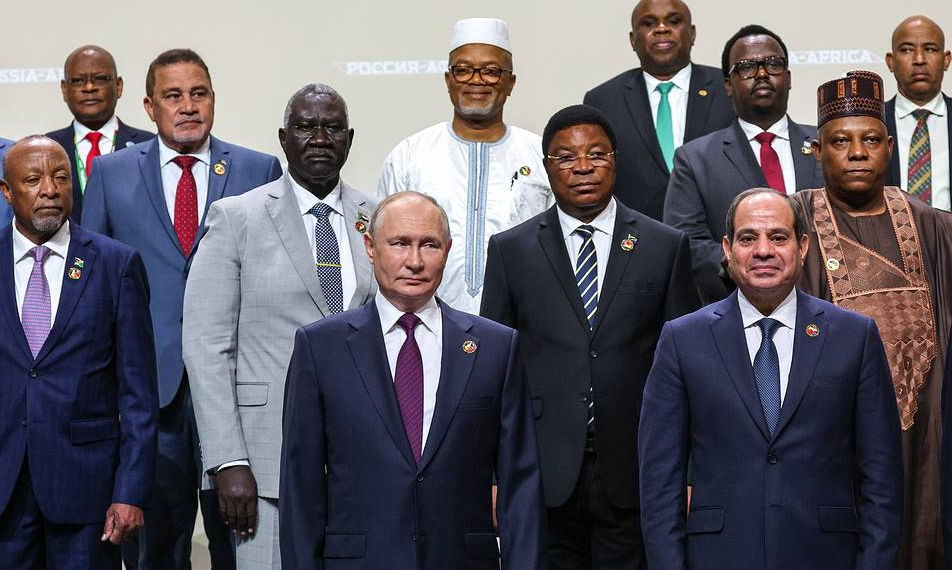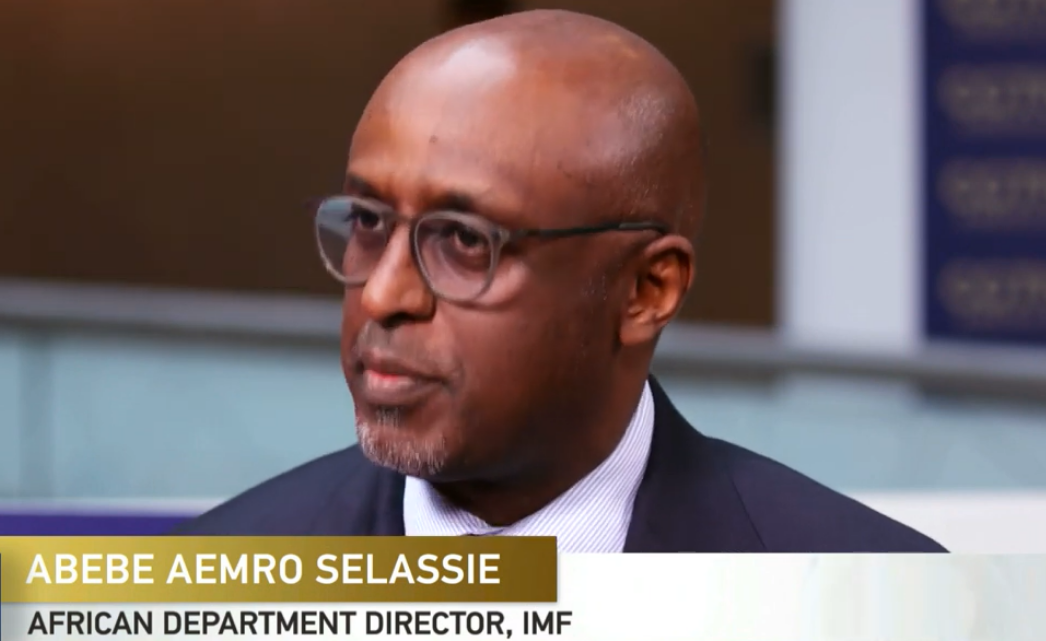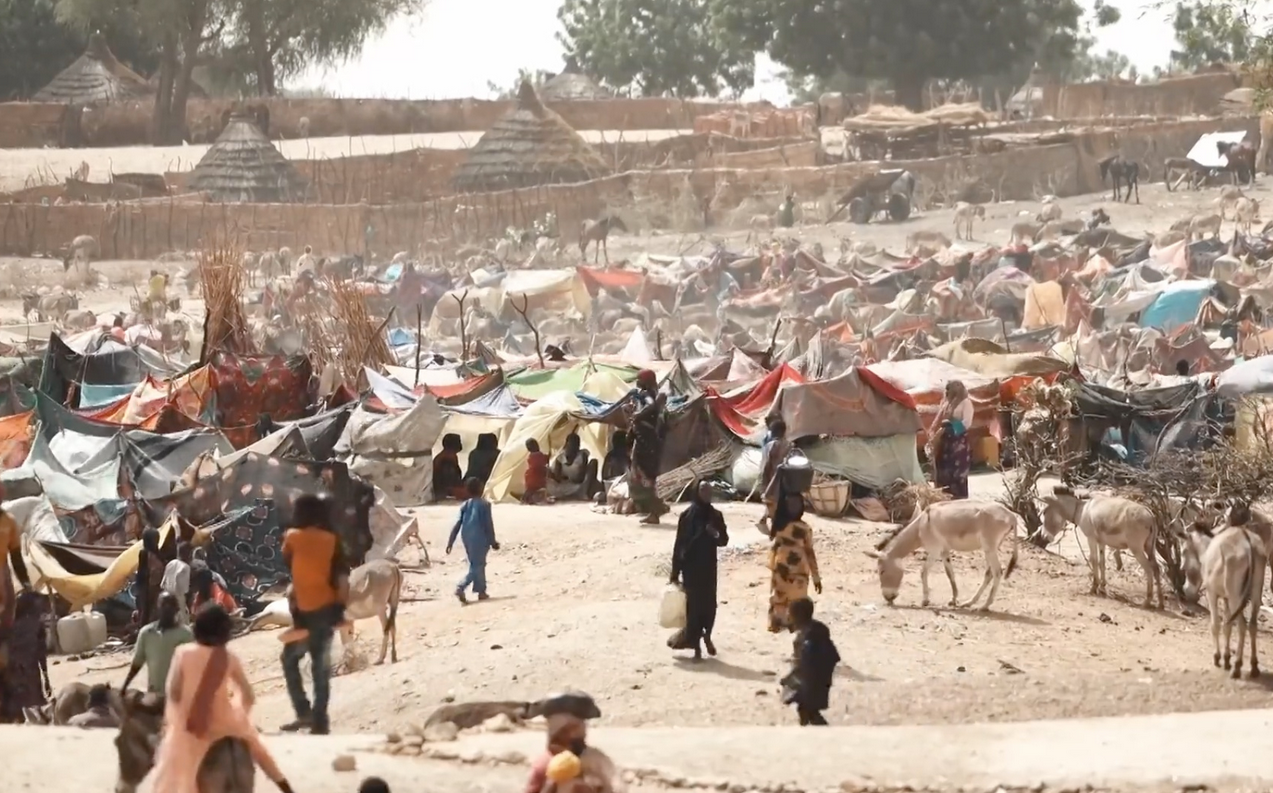Photos: Wikimedia Commons\YouTube Screenshots
If head counting is any indication, Russian diplomacy in Africa is slipping. A Russia-Africa summit meeting held in St. Petersburg drew only 21 African heads of state, far fewer than in 2019 when the summit attracted 45 heads of state. (By contrast, 50 attended Pres. Biden’s Africa summit last December.)

The reason for the low participation may be Vladimir Putin’s withdrawal from the grain deal with Ukraine, which is causing a major price increase throughout Africa. Putin is now promising free grain to several African countries over the next four months.
As the summit unfolded, yet another coup took place in West Africa, the seventh since 2020. The democratically elected president of Niger was overthrown; a general has been installed as head of state, and opposition politicians have been arrested.
In recent years coups have also occurred in Mali, Burkina Faso, Guinea, Chad, and Sudan. Niger, formerly a French colony, is particularly important for the US as a military partner in counter-terrorism activities.
The US operates a drone base there and deploys more than 1000 troops in Niger. Niger also has large deposits of uranium. The coup leadership’s political leanings are unclear but suspect.
The African Union has condemned the coup; the West African economic bloc ECOWAS is demanding that the president be reinstated, and has even threatened military intervention; the US State Department—well, it called for democracy to be restored, but chose not to call the coup a coup so as to leave open a legal avenue for continuing military cooperation with the coup regime.

Coup politics in Africa has become a Russian specialty, and we may yet find that Russia’s Wagner mercenary group, which commands roughly 1000 soldiers, will be operating in Niger. Wagner has supported coups in three of the other countries mentioned.
Guess who attended the St. Petersburg summit? Yevgeny Prigozhin, Wagner’s leader whose mutiny turned Moscow upside down. Perhaps his presence was part of the deal he struck with Putin to stop his rebellion.
Prigozhin reportedly hailed the Niger coup for overthrowing colonialism, meaning a pro-Western leader; he offered his troops to help reestablish order, meaning repression of the new regime’s opponents.
The great tragedy here is twofold.
First, military rule is snuffing out democratic options throughout West Africa. Niger’s overthrown government was the country’s first experiment with democracy. The generals who rule now don’t show any sign of interest in that experiment.
Second, the great needs in West Africa are finding the resources to address poverty, illiteracy, and desertification south of the Sahara. Aligning with Russia will not help solve those problems. To the contrary, if the Wagner group has the kind of influence with Niger’s coup regime that it has with others, expect repression of human rights and abuse of government resources to keep the military in power.

Mel Gurtov, syndicated by PeaceVoice, is Professor Emeritus of Political Science at Portland State University and blogs at In the Human Interest.








